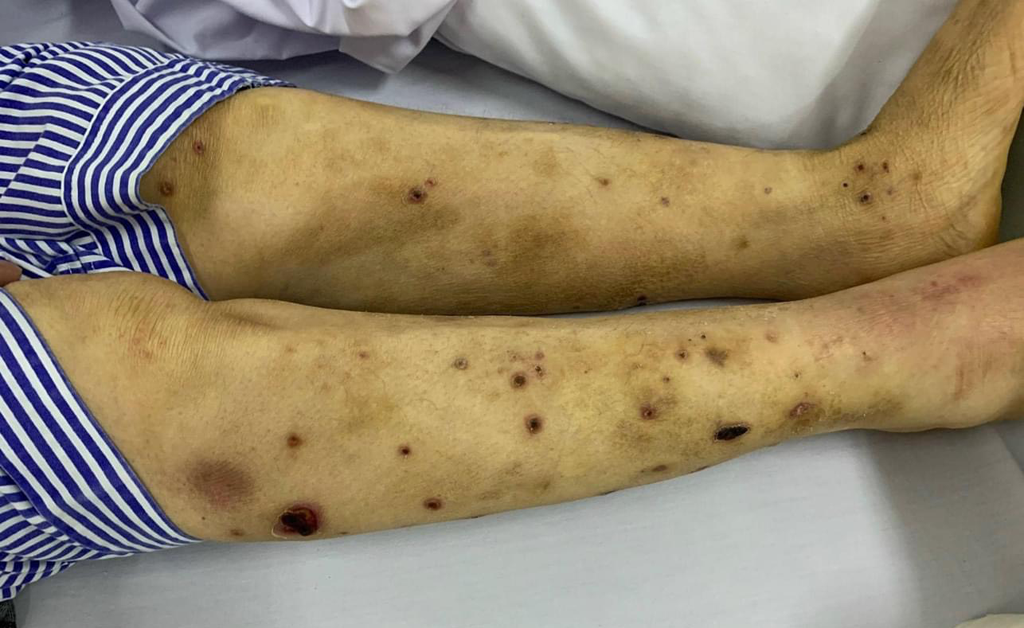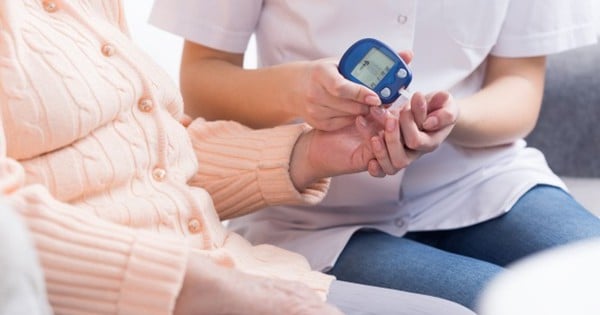At the Central Endocrinology Hospital, after examining and taking the patient's medical history, the doctors were told by the patient that he had suffered from diabetes for many years, with multiple complications and spinal degeneration. Explaining the thick pus-filled blisters covering his abdomen and both legs, the patient said that about a month before being admitted to the hospital, an acquaintance told him to use bee stings to relieve pain and his family invited a traditional healer to their home to "treat" his leg pain by... bee stings. After the "treatment", the patient's pain in his limbs and difficulty walking did not improve, and the bee stings even became infected and inflamed.

According to the doctor of the Emergency Department - Central Endocrinology Hospital, diabetic patients who do not manage their blood sugar well cause high blood sugar, increasing the risk of infection and slow healing of wounds. Therefore, with bee stings, patients are very likely to get secondary infections causing necrosis of the pus-filled areas.
Regarding the causes of wound infections in people with diabetes, an endocrinology and metabolism expert from the Ministry of Health said that the skin is a natural protective layer for internal organs. When the skin is damaged, it creates conditions for external bacteria to penetrate and cause infection; the skin near the wound becomes red, painful, pus-filled and secretes mucus with an unpleasant odor. Infected wounds are more difficult and take longer to heal. In diabetic patients, especially those who do not control their blood sugar well, there is a very high risk of wound infection. The reason is that high blood sugar negatively affects circulation (reducing blood flow to the wound) and the immune system.
Doctors at the Central Endocrinology Hospital advise patients not to arbitrarily treat symptoms with methods that are not scientifically proven. In particular, people with diabetes need to comply with treatment to manage blood sugar well and control the risk of complications. Patients or their families can contact the phone number 09679.0880 for advice on diabetes.
Source link




![[Photo] Closing of the 11th Conference of the 13th Central Committee of the Communist Party of Vietnam](https://vstatic.vietnam.vn/vietnam/resource/IMAGE/2025/4/12/114b57fe6e9b4814a5ddfacf6dfe5b7f)

![[Photo] Overcoming all difficulties, speeding up construction progress of Hoa Binh Hydropower Plant Expansion Project](https://vstatic.vietnam.vn/vietnam/resource/IMAGE/2025/4/12/bff04b551e98484c84d74c8faa3526e0)













![[Video] First time in Vietnam: Successful implantation of 3rd generation partial artificial heart](https://vstatic.vietnam.vn/vietnam/resource/IMAGE/2025/4/12/8817412224094c68ba2c744b7bd5cfea)










































































Comment (0)